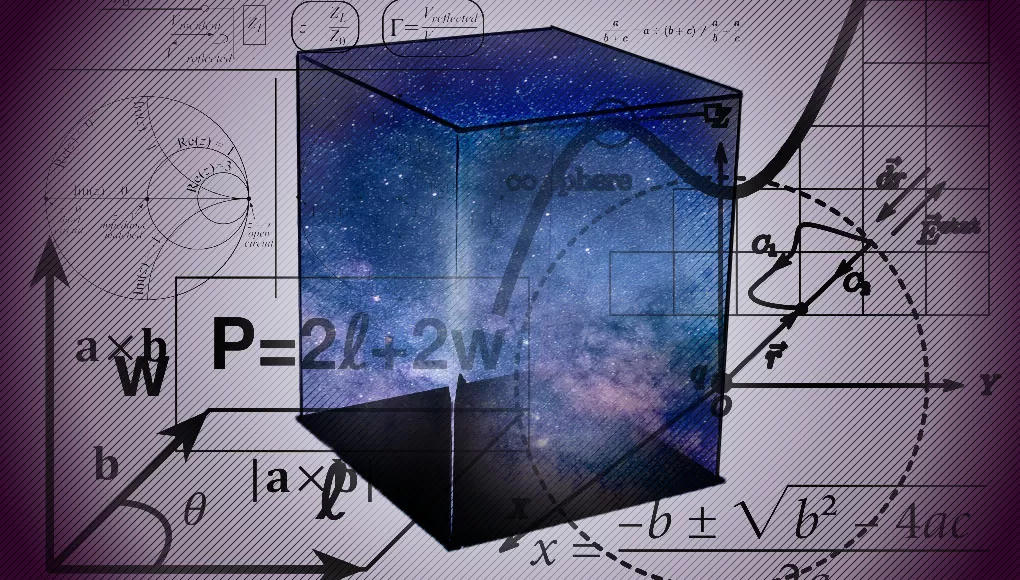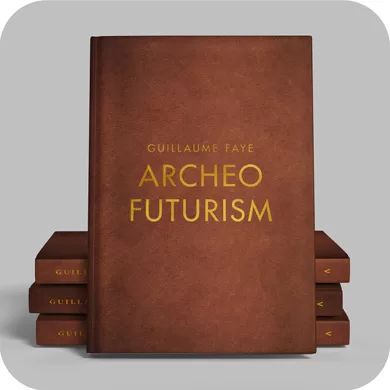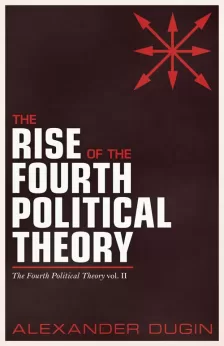Some time ago I examined two approaches to rationality: that of Aristotle and wider Greek philosophical society, and that of the Counter-Enlightenment. What underlined both of these approaches was a method of approaching the search for truth which deviates from contemporary analytic or post-Enlightenment ‘rationality’. Often, the thinkers of the past were willing to pull together ideas and approaches from a wide variety of sources – sources which today would be considered ‘external’ to philosophy. Indeed, until the late 19th century, the disciplines of philosophy, theology, mathematics and science were not clearly distinguished, and many authors in one of these areas demonstrated significant influence from experts in the others. Take Laplace, for example, the ‘French Newton’, whose work in mechanics has been highly influential on modern mathematics and physics, but whose speculations about mathematical formulae also has important ramifications for the eternal free will vs. determinism problem. Modern science has moved on from Laplace by bounds, but it seems to me that modern science is also coming to roadblock in its methodology.
Science has insulated itself against incursions by other disciplines for some time. Wittgenstein summed up this attitude of ‘scientism’ perfectly in the Tractatus, where he went so far as to claim that speculative philosophers and theologians could not be taken seriously in any scientific proclamation they might make, since the discourse in which such figures engage is completely separated from and incomparable to scientific discourse, in short ‘a division of [the studies of] life into strict compartments’.1 The compartmentalization of rational disciplines has not been a healthy one. Religion and traditional schools of philosophy – whatever flaws one may identify within them – at least have the confidence to be able to make claims about the truth (which may or may not stand up to scrutiny); modern science has no such capacity, nor indeed any will, to make claims to the truth. As Julius Evola astutely points out:
None of modern science has the slightest value as knowledge. … [T]he concept of ‘truth’ in the traditional sense is already alien to modern science, which concerns itself solely with hypotheses and formulae that can predict with the best approximation the course of phenomena and relate them to a certain unity. And as it is not a question of ‘truth’, but a matter less of seeing than of touching, the concept of certainty in modern science is reduced to the ‘maximum probability’.2
This, in an age where science is pushing the very boundaries of existence? where the discovery of the holographic principle seems to imply the possibility of a determined, intelligent design? where either relativity is true and the Universe is ultimately unknowable, or quantum theory is true and the laws of nature as we have traditionally understood them are subject to exceptions which science itself could not previously have imagined? In many ways, this scientific roadblock is the perfect example of how the Western philosophical tradition since Enlightenment has been doomed to fail. It seems that if science can only claim that it is probable that the laws of nature exist, or that if they do not exist, it is probable that alternative, more random laws govern material things, then the sum of knowledge that human beings have has not advanced much beyond the day that Descartes began to doubt the existence of his material body. But even Descartes could not doubt his own mind! Contemporary physicalism (which dominates the mind-body debate) would not even admit the possibility of the existence of mind as a metaphysical entity, but rather only as an extension of the body. So science leaves us with even less than philosophy: we probably exist – but we cannot rule out the possibility that we do not.
Yet, intuition is a much more powerful force for the majority of us than scepticism. Surely, the common-sense man might say, we do know that there is such a thing as truth. G. E. Moore famously declared in response to scepticism: ‘Here is a hand.’ Indeed, I know that I have a body, for here it is, and here you see it. The limitations of common-sense, and the dangers of syncretizing philosophy and science, I believe can be overcome through an understanding of the relationship of human consciousness to the ancient idea of nous.
I will first present an Aristotelian account of reason (λόγος). For Aristotle there are four human capacities for truth, plus the nous. The four capacities are: theoretical wisdom (σοφία), practical wisdom (φρόνησις), technical knowledge (τέχνη), and scientific knowledge (ἐπιστήμη). One can have theoretical wisdom without having practical wisdom – for example, one can know that the virtues are good, but also not know how to judge when the virtues ought to be used – and one can have scientific knowledge without technical knowledge – one can know that dough will become bread under conditions x and y, but not know in the slightest how to bring that about; and vice versa in each case &c. After explaining these things, Aristotle brings in nous: ‘understanding’ or ‘intellect’.
There is understanding, not a rational account, both about the universal and particular terms. In demonstrations understanding is about the unchanging terms that are universal. In premises about action understanding is about the particular term. … For these particular terms are the beginnings of the goal to be aimed at, since universals are reached from particulars. We must, therefore, have perception of these particulars, and this perception is nous (understanding).3
Nous is the part of the intellect which allows us to distinguish between universals and particulars, between theory and praxis, if you will. The aim at which the intellect is grasping is the Good, which is the life of contemplation, or the life of understanding. In his Metaphysics, Aristotle describes the sublime substance (divinity, or the philosophical Absolute) as ‘the ultimate understanding of ultimate understanding’. Aristotle assumes that the good life is one conducted in imitation of this divine principle; we have therefore encountered a problem – we cannot expect this model of rationality to be acceptable in a world which has rejected the very notion of ‘divinity’, such as our own. A supersubstantial substance seems repugnant to the ingrained scepticism of the philosophical tradition adopted by modern science, as we mentioned before. Yet without such an idea, we seem doomed to be infinitely sceptical, and distrustful of the common-sense perceptions of our intellect.
The greatest objection to any ‘theory’ of rationality is the objection from diversity; one could perhaps better express this with the statement that ‘one man’s rationality is another man’s folly’. Look at the variety of ‘rational’ ideas throughout history: Aristotle says it is rational to imitate divinity by mastering and using our faculties at the best time in the best way, but modernity tells us that to acknowledge divinity is folly. Bentham tells us that our own self-interests are unimportant, that rational decisions can only be made based on the calculus of pleasure vs. pain. Sidgwick claims that we are permitted a degree of self-interest so long as we recognize that it is in our self-interest to sustain both ourselves and others. There seems to be a problem here: these views cannot all be correct, at least in the absolute sense. However, let us now bring together Aristotelian common sense and the Hegelian idea of Spirit which was touched upon in the preceding articles. It seems that, in the case of moral judgment, I am, as a person, both intuitively drawn to sympathize with other people, and that I have needs of my own. It seems that I ought to satisfy my own needs and I ought to help others where I can. How am I to judge the balance?
Virtue says that helping others is good, and I must use intellectual prudence to judge how it might be good. I cannot help others if my own basic needs are not being met, and this tells me that I must attend to my own needs. If I only attend to my own needs, then I neglect virtue, and this is not in my own interests either. Virtue provides both satisfaction and utility. Hence, I can judge that I can spare some food for the hungry person, because my own basic need is met. If I gave the hungry person all the food I had, then I would be in the same situation as the hungry person, and this seems to cancel out the product of virtue. In some ways, Bentham’s ‘utility’, whilst perhaps not the motivation behind my virtuous action, is nevertheless increased by the praxis of virtue. I was only able to judge the right time and place to apply virtue on account of prudence, which told me that there must be a balance between personal interest and external interests. But whence the concept of virtue?
A religious person would say that his virtues have been revealed. But what does revelation mean? There are two kinds: supernatural and natural. Supernatural revelation is found in the Biblical-style stories which we all know, via prophets and burning bushes and so on. If I can judge that a man is a genuine prophet, then perhaps I have reason to accept his teachings. Yet, I see no genuine prophets in our own time, no miracle-workers, and no fantastic events which can prove the supernatural origin of a man’s words. Hence I have to resort to the second question: what is natural revelation? Natural revelation comes through consciousness. A collective consciousness represents a ‘group Spirit’, to use the Hegelian terminology. We can see today that group Spirits are set against one another: Right against Left, Science against Religion, and so on. Spirits or Minds which are set against one another are antagonistic Spirits, because it follows:
- Group A makes a claim that p.
- Group B makes a claim that not-p.
- Therefore p = ?
There is no understanding to be found here; we are in a state of perplexity. Either one of the groups is wrong and the other right, or both are wrong. There is a temptation here to immediately apply the Hegelian dialectic to the situation, which would result in a conclusion sounding something like ‘elements of both p and not-p are true’, and this may well be a viable conclusion, but before we can reach such a judgment, we must apply the intellect. This is achieved by examining the particulars. For example, it may appear that,
- Group B’s claim that not-p is based on a misunderstanding of A’s premises for p.
- Therefore not-p = F
- Hence p = T
I would like to return to our original contention that science has reached a dead-end on account of its insulation from the encroachments of other disciplines. I suspect that this division of science, philosophy and other disciplines into ‘strict compartments’ has occurred on account of misunderstandings between the experts in each field. It is assumed now, after decades of division, that the theologian hates science, that the philosopher is more concerned with wild speculations about the existence of his armchair than real practical matters, and that the scientist has something meaningful to say even though he cannot reliably say with any certainty that his theses are true. Rather than insulating ourselves from one another, then, any syncretic attempt at study will involve discussions between individuals across disciplinary fields. A broader philosophical community, a collective consciousness which is capable of unabashed study across these fields, must be established.
The intellect can reconcile theoretical and practical wisdom (philosophy) with scientific wisdom if it has prudence. We shouldn’t be worried about the implications of this. There has been a concern for some time that, for example, ethics, when scientized, becomes nothing beyond pure motivationalism – that any serious pronouncement on morality fails to extend beyond the ‘chemical’, bodily response which results in claims such as ‘Down with stealing!’ and ‘Huzzah for imprisonment of those who steal!’ Yet if we could reconcile these basic bodily reactions to moral events with a moral theology – for instance, to build a model of the average intelligently designed human who is capable of moral instinct – then our moral positions would not be weakened, but rather strengthened in the knowledge that common-sense, or biological responses to stimuli, are innately part of a divine design to orient humanity towards good ends.
This has just been a presentation of few ideas relating to a rediscovery of a truly ‘rational’ system. I will give a summary of my claims as follows,
- Science is at an impasse. It cannot offer truth and is unable to reconcile conflicting findings.
- This failure of science represents the failure of Enlightenment philosophy.
- Our common-sense beliefs are accepted and corrected by intellect.
- The virtues can be applied through prudence.
- Intellect and prudence in the classical sense can resolve logical problems without dialectics.
- Science, philosophy, mathematics, and theology can be reconciled by intellect.
- This must be achieved by like-minded individuals if the Western philosophical project is to continue.
References
1Arrington & Addis (eds.), Wittgenstein and Philosophy of Religion, c. 6.3ff.
2J. Evola, Ride the Tiger (Inner Traditions, 2003), p. 129.
3Aristotle (based on T. Irwin, trans.), Nicomachean Ethics VI.11 (1143a 37–1143b 9).










Mr. Illingsworth, I think that I have made related comments elsewhere and I do not want to tax the patience of the readers of ‘Arktos’. Here, I would say that the best exercise of practical and theoretical knowledge would be exhibited by people aiming for, and doing, both. Be people who do science (and/or technology) and be people who philosophize and people who have faith. We know the many disease states of the soul. It is time to simply do.
And regarding some comments of yours on altruism, I (again) recommend MacIntyre’s rather short work, ‘Dependent Rational Animals (1999)’. It sounds like what you are looking for.